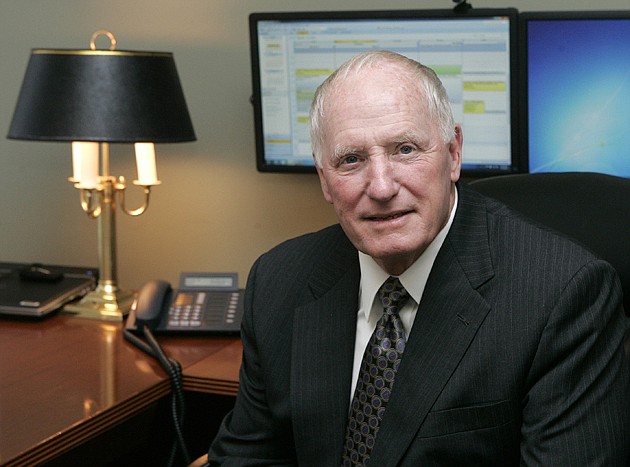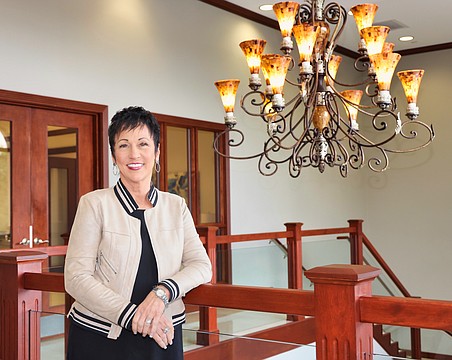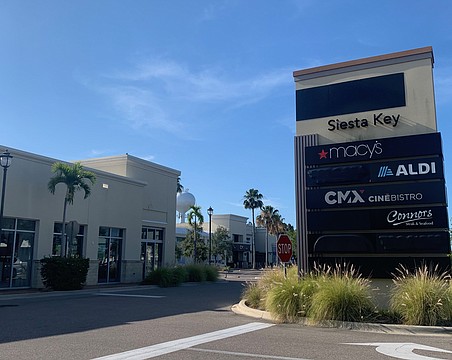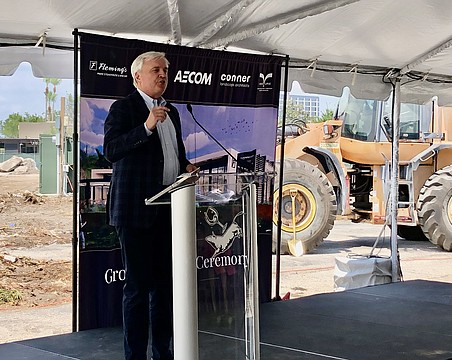Barry Gilway encountered several surprises in his first days on the job as the new president and CEO of state-run Citizens Property Insurance Corp.: The stunning financial problems with sinkhole coverage, the quality and esprit de corps of executives in the company and, of course, Tropical Storm Debby.
However, he was well aware of what he calls the “one-thousand-pound alligator in the room” before he accepted the job: Citizens is way too big, far too exposed and undercapitalized and the problem boils down to having rates that are set competitively too low because of political meddling.
Citizens is too often the lowest price in the market, so it's understandable it would become the largest insurer — more than twice the size of the second largest insurer.
But knowing a problem and fixing a problem can be worlds apart. And that is maybe nowhere truer than with Citizens and its hybrid arrangement of trying to be self-solvent while having rates capped by politicians.
Gilway, 66, has been in the insurance industry for 42 years. Most recently, he was President and CEO of Mattei Insurance Services, based in Seattle. Gilway also spent 15 years as an executive with Zurich North America, a financial services company that owns Maryland Casualty Group, which he also ran.
Everyone knows the problem he faces. At the urging of then Gov. Charlie Crist, the Legislature passed a 10% cap on Citizens' rate increases and there is constant political pressure to keep rates low. Citizens' has more than 1.4 million policies, most of which represent a vote, and the Legislature has been loathe to appear responsible for raising rates by removing the cap. In fact, instituting it came as a direct result of the market raising premiums sharply after the awful storm years of 2004 and 2005.
Meanwhile, State Farm Insurance, the second largest property insurer in the state, seeks a 14% raise after getting similar ones in recent years. That means the problem gap is actually getting wider, which results in pressures for more people to get Citizen policies.
“The gap has to be closed, but it's getting wider,” Gilway says. “I'm very supportive of removing the cap.” And he told the Florida Cabinet recently that he understands there is a “sensitivity” to the question of rates. However, he said: “Citizens as a government entity should not compete with the private market...We should only take those policies that the private marketplace simply cannot absorb.”
Gilway makes clear that he is opposed to closing the rate gap with private insurers too quickly because of the adverse impact that would have on the housing market and hence the broader economy.
He plans a major education campaign to make everyone — specifically Citizens policyholders — aware of the risk they have. He wants that risk transferred as much as possible to offshore re-insurance companies and through the issuance of catastrophe bonds.
“It transfers risk outside of Florida to a completely different set of investors,” Gilway says. “Every dollar of risk transferred into the international market is a dollar of risk taken off the back of Floridians.”
Gilway's work is a steep mountain to climb. But in discussing the hefty political and marketplace trials, he sounds like a man pumped up before a big game. He recently spoke to the Business Reviewabout his new job.
Q. What made you interested in taking on the job leading Citizens?
A. It's simply a fascinating challenge. I've been a CEO with Florida companies from afar. This has been a problematic marketplace for a long time. It's a difficult decision for a private company CEO to invest capital here with all the risk. And I'm increasingly aware of the political environment.
I'm 66 years old and have been in the industry for 42 years. I would love to be part of solving this problem.
The second reason is personal. I've wanted to be in Florida for 10 years. I think I've seen three days of sunshine in Seattle.
Q. What are your initial impressions of the condition of Citizens?
A. Shock, but shock in a positive way. The talent here is exceptional. It's incredible the amount of work that got done (during Tropical Storm Debby.) We have really quality people here. (Debby) gave me a chance to understand the claims-paying capabilities immediately. It's very, very impressive.
I expected the attitude of folks to be somewhat disgruntled. They're getting hit every day. But they're not disgruntled. I have not talked to anyone who doesn't understand the objective and support it: to get Citizens back to being the insurer of last resort and get private capital back into the marketplace.
But I want to step back and look at the whole organization with a fresh set of eyes.
Q. The key to accomplishing that is depopulating Citizens. Have you been able to form any strategies for that yet?
A. I can't get away from the fact that we need to create the scenario of a better playing field for private companies. We should not be competing on the basis of price and we should not be competing on the basis of product. So I'm looking very hard at how we can improve the competitive playing field. What will it take to entice them back into the market?
We don't need a product that is in competition with products in the private marketplace. We have a 25% rate inadequacy in the PLA account (personal lines account) and a 45% rate inadequacy in the coastal account. In some counties, the coastal account inadequacy is as high as 400%.
Q. It sounds like on the coastal accounts, Citizens is the insurer of only resort.
A. Yes, true. That business comes closest to what should be done by an insurer of last resort. Most of that business fits in that category. This is one of the most difficult decisions we face. My objective is to step back and look at every conceivable option available. I owe it to my board.
Q. What is the most daunting aspect of taking over Citizens?
A. Sinkholes. In 2011, we took in $50 million in premiums and paid out $400 million in claims. This year, the number of claims is down 25%, but the indemnity is increasing because of attorney involvement. The number of claims coming to us through attorneys has tripled.
Q. What is driving the increased involvement by lawyers?
A. Greed! It's an obvious target. We're going to take a very aggressive stance from a litigation perspective. We can't be a mark for attorneys.
Q. What does more aggressive litigation mean?
A. We don't automatically pay claims where there is evidence of fraud. We've got to stop paying for houses when there is a cracked foundation. We should pay every dime that we owe, but not a dime more. We will fight those that are questionable.






